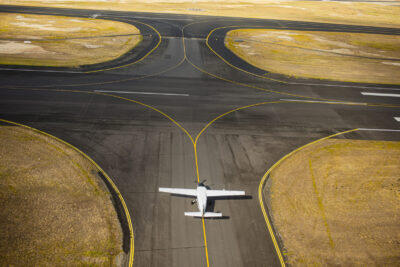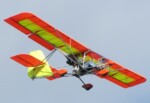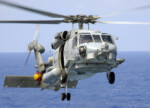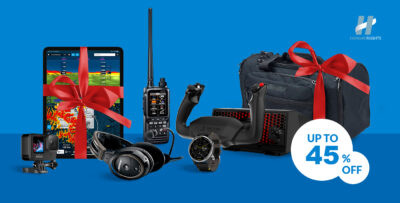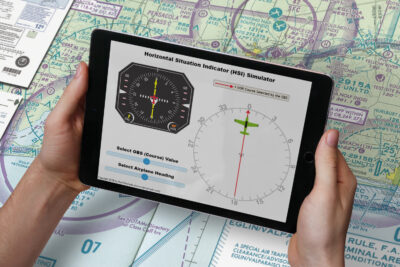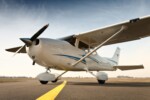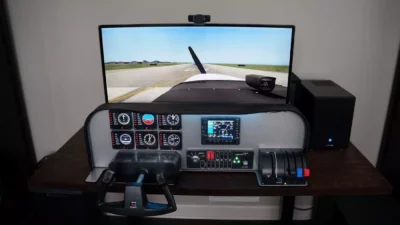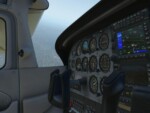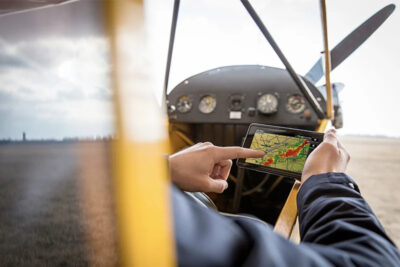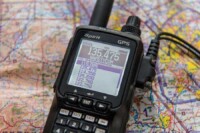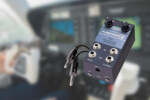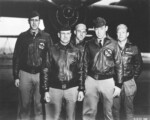The 9 Best Portable Aviation GPSes for Pilots in 2026
6 July 2021 | Updated on February 16, 2026
As airspace becomes more complex and there exists an increased need for moving map and GPS systems, pilots often find themselves overwhelmed with the available options on the market today. Brands keep innovating by building newer and more capable solutions. But which one to pick?
Let us help you by showing the best portable aviation GPSes for pilots!
If you want to learn more, we’ve included a full buying guide at the bottom.
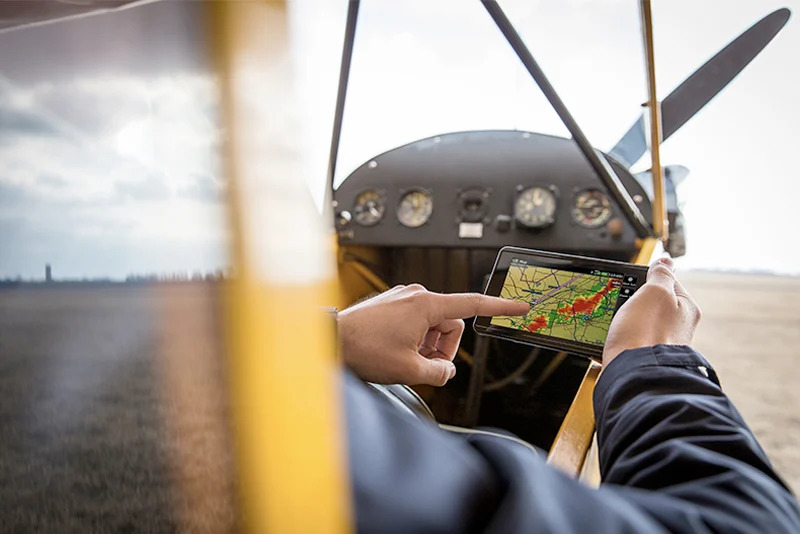
The Best Portable Aviation GPSes in 2026
Let’s start by listing a few of the most popular and top-rated portable aviation GPS systems. We will list a few good GPS receivers later as well.
1. Garmin inReach Mini
As pilots, we sometimes get caught up in our post-flight tasks, often forgetting to inform loved ones that we safely arrived.
With Garmin’s new inReach product series, you can keep in touch with people on the ground through its satellite communication system, while they can also keep a close eye on your journey through GPS. The Garmin inReach Mini is the most compact model in this series.
Important to note is that the Garmin inReach systems require a subscription plan to take full advantage of all their features. Subscription plans range from $11.95/mo. to $99.95/mo., with options for either seasonal or year-round subscriptions.
2. Garmin inReach Explorer+
The Garmin inReach Explorer is the larger and a little more equipped version of the smaller inReach Mini.
Which inReach should you pick? The inReach Mini, SE+ (not mentioned in this guide as it’s succeeded by the Explorer+) and Explorer+ offer identical messaging capabilities.
It’s on the GPS navigation side that the differences become apparent. The inReach Explorer+ offers full-fledged GPS on-map guidance with preloaded TOPO mapping and waypoint routings viewable directly on the unit. Plus, it also includes a built-in digital compass, barometric altimeter and accelerometer. The inReach Mini includes a smaller, black and white screen with no maps.
3. Garmin aera660 Touchscreen Aviation Portable GPS
Although not as portable or capable as the Garmin inReach, the more traditional Garmin aera660 aviation GPS still offers lots of value for its price. It’s portability and great display, make this a very valuable tool for the cockpit, especially when you fly more than one aircraft and like to have a decent aviation GPS with you at all times.
4. Garmin D2™ Mach 1 Aviator Smartwatch
Building on the success of its predecessors, Garmin recently launched the Garmin D2™ Mach 1, an improved and lighter version of the previous Garmin D2 models, hence the name ‘D2 Mach 1’.
Everything you need in the cockpit is packed in a slim, stylish AMOLED smartwatch. The newest Garmin GPS pilot watch includes tools for preflight, in-flight and post-flight activities around town. If you’re looking for a compact, reliable, and stylish GPS pilot watch to take with you at all times, the Garmin D2 Mach 1 is an excellent option!
5. Yaesu FTA-750L Handheld Transceiver (NAV & COMM)
It might seem a little odd that we included a handheld aviation transceiver in this list, but this compact handheld transceiver offers a COM/NAV radio with NOAA weather channels & weather alerts, VOR navigation, ILS/glideslope navigation, ánd a GPS WAAS receiver!
The perfect backup safety system for your cockpit!
6. Yaesu FTA-850L (GPS)
While we are at it, the Yaesu FTA-850L is Yaesu’s recent flagship model. Featuring a full-color oversize 2.4″ display, this radio/handheld GPS was precisely engineered to meet the requirements of top aviators; packed with every feature you may desire in a handheld aviation radio, such as ILS, VOR, GPS, 400 memory channels, Bluetooth, etc.
The main selling point of the FTA-850L is definitely the GPS navigation combined with the bright full-color display. Using the Flight Route Navigation feature, you are presented with the traveling route including all waypoints between the departure point and final destination. Route, Location and travel status can be assessed at a glance.
If you’re looking for a handheld GPS and radio combined in a single device, there’s really no better option currently available on the market.
PS: We have just ordered this radio ourselves. Once it arrives and we got a chance to test it extensively, you can expect a full review on Hangar.Flights!
The Best Aviation GPS Receivers
For those flying with an iPad or other tablet and not specifically looking for a standalone GPS, a decent GPS receiver may be a better option for your needs. Again, there are quite a few good options, most of which you will have probably heard of before. We will list a few of the possibilities, with a few features to help you make an informed decision.
1. Garmin GDL 52 Portable SiriusXM/ADS-B Receiver
Providing an easy-to-use and completely portable aviation satellite link, the compact Garmin GDL 52 combines SiriusXM coverage — accessible from ground or air — with the subscription-free weather and traffic features of an ADS-B “In” datalink. Together, these 2 network link technologies bring a world of safety-enhancing features — plus access to more than 150 channels of digital-quality music, news, sports and other entertainment programming — directly to your cockpit. Better still, you can use our Connext wireless connectivity to stream this information onto multiple Garmin aviation portables (including aera 660, aera 796 or aera 795 series) as well as iPad tablets and mobile devices with the Garmin Pilot app. So you get more access — on more devices — without spending more money.
2. Garmin GLO 2 iPad and Android GPS
Garmin’s legendary quality and performance is now available for mobile devices, including Apple’s iPad and Android. The new GLO 2 combines a GPS and GLONASS receiver into a compact, wireless unit to deliver unmatched accuracy.
3. Stratux ADS-B Dual Band Receiver Aviation Weather and Traffic
If your budget is a little tighter, the Stratux ADS-B Dual Band Receiver is a great inexpensive alternative that provides you with ADS-B traffic and weather information in flight.
Aviation GPSes
If you’re flying a state-of-the-art airplane, with glass cockpit and all the fun features you can wish for, you might already have the necessary GPS tools to help take some pressure off your shoulders while flying.
But most of us still have to do it with the good ol’ 6-pack analog gauges, which we’re most likely completely fine with, by the way! A portable GPS device is the perfect solution for those flying aircraft that are not equipped (yet) with modern GPS systems, or for those of us who like to have a backup in case we need it.
More and more pilots are using their iPad while flying, as it allows for almost endless possibilities to take tasks off your hands before, during and after the flight. If your iPad is an LTE model, you already have a built-in GPS receiver that will get you all the GPS data you might need. But it also has some limitations compared to dedicated GPS solutions; you can often not receive actual weather and traffic information, there is no satellite communication possible with those on the ground,…
(If you want to read more about iPads and accessories, we have created a separate guide about that!)
The products listed in this guide all offer valuable tools and features like the ones we just mentioned.
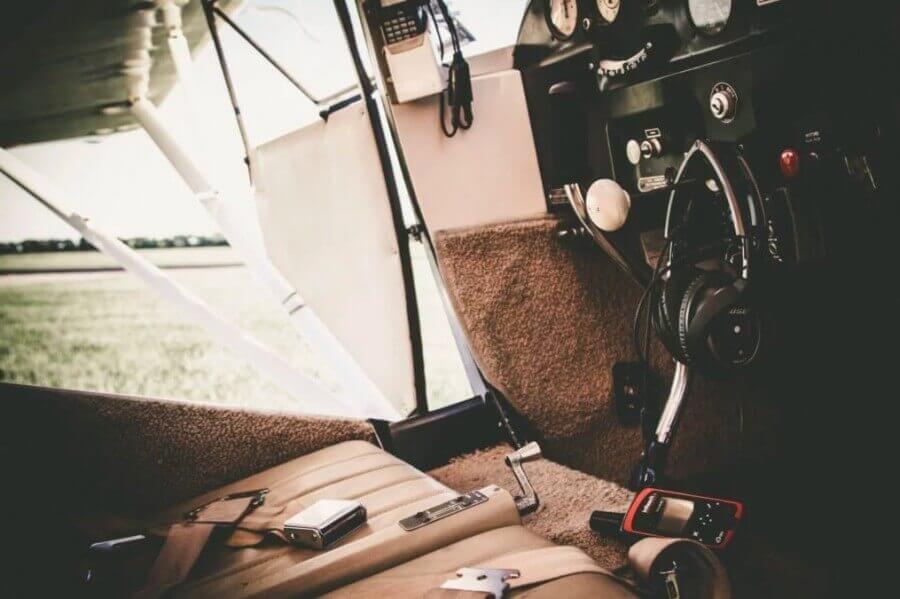
What to Look for
You decided a handheld aviation GPS may be a good tool to have in your flight bag. So how do you pick the right aviation GPS, and what are some things to look out for?
Compatibility
If you’re planning on using the GPS in combination with other systems and tools, it’s important to consider the compatibility of the GPS unit you’re interested in. While most GPS receivers are compatible with iOS devices, it doesn’t hurt to dubble check, especially if you are using other platforms such as Android.
Portability
Although the topic of this guide covers handheld aviation GPS units, some are a little more portable and compact than others. Of course, it all depends on what you are planning on using it for.
For example, while the Garmin inReach series is very compact and easy to put in a small side pocket, viewing the map and reading the data in-flight might be a little harder than when using, for example, the Garmin aera GPS.
Ease of use
When investing some money into a GPS that could make your life easier, it’s important that it’s easy and convenient to use as well. In the cockpit, you’re often handling multiple things at the same time, there’s no time to open up a manual and start reading instructions on how to use a certain feature you need at that moment. An easy to use GPS unit can save you from a lot of frustrations.
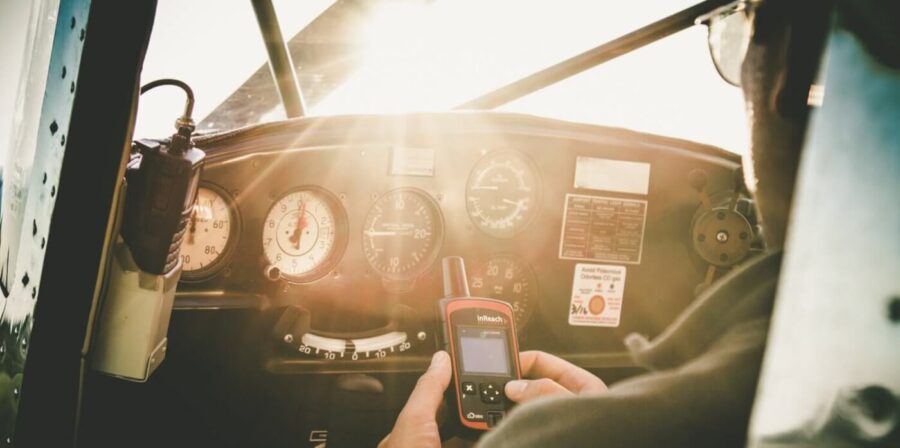
Functionality
Not all GPS units mentioned in this guide offer the same functionality. While all units listed in this guide offer some sort of GPS functionality, some are packed with other features like satellite communication, or weather and traffic receivers.
In the end, it all comes down to what it is you need, and what your budget allows.
Affordability
While it’s always nice to have the best and most advanced gear available, it’s not always important to get the most expensive model on the market. Your budget and needs will determine whether you can afford and need a high-end GPS, or if a more compact and inexpensive option can do the job just as well.
Conclusion
It has become clear that there are quite a few great options on the market, most of them offered my market-leader Garmin. Based on different reviews and talking to product owners, we have found the Garmin inReach Explorer+ and the Sentry ADS-B Receiver are the two most popular options.
